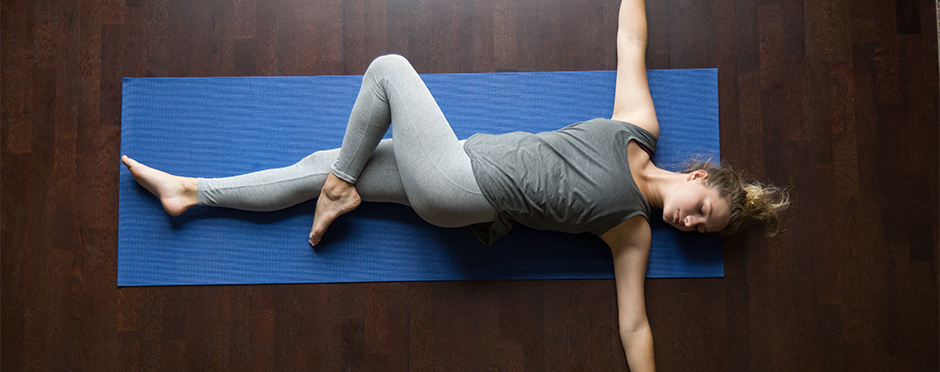
Self-Care for Gymnasts During Competition Season
Leave a CommentGymnasts have a very long season- they usually practice year-round with the main bulk of the competition season occurring during the winter and spring for many levels. Due to this type of training schedule, gymnasts need to make sure they are taking care of themselves during and after practice. Here are some tips for self-care for gymnasts to keep them healthy and on track for a great season.
Active Recovery Techniques
With the amount of training many gymnasts perform, muscle recovery is a key component of self-care. Types of active recovery can include:
- Foam rolling or stick rollers
- Massage guns
- Dynamic stretching
- Static stretching
- Yoga
- Pilates
Active recovery is helpful to manage muscle soreness symptoms that can occur after high intensity workouts. Rest days are good and necessary, but doing some active recovery can help decrease muscle soreness as well. Learn more about active recovery in this blog.
Hydration
Water during practice and competition is necessary. Water helps to replace sweat during exercise to prevent overheating and dehydration. Dehydration can affect physical and mental performance. Sports drinks have added carbohydrates and electrolytes to improve performance during longer workouts and in very hot weather. Energy drinks have a lot of caffeine which is a diuretic and can make you more prone to dehydration.
Nutrition
Nutrition is important, as what we eat becomes fuel for our bodies. A well-balanced diet includes protein, carbohydrates, fats, water, and vitamins/minerals. A good diet includes multiple categories and a balance of all the categories.
Gymnasts have unique needs compared to their less-active peers. They generally need more calories each day to fuel sports performance as well as growing needs. Depending on the activity and practice schedule, teen athletes may need 2,000-5,000 calories per day to meet their energy needs. If gymnasts are not eating enough, they are less likely to achieve peak performance and may not be as fast or as strong as they could be. They also may start breaking down muscle rather their building muscle. And in extreme conditions, the gymnast may lose weight, experience growth problems, and have other health risks such as abnormal menstrual cycles or increased risk for fractures.
Sleep
Teens between ages 13-18 should get 8-10 hours of sleep each night as recommended by the American Academy of Sleep Medicine. Sleep is crucial to recovery, academic performance, injury prevention, and psychological well-being. Sleep deprivation can make gymnasts more prone to acute illness, traumatic sports injuries, and chronic disease.
Tips to improve sleep:
- No caffeine later in the day
- Only take short naps (20 minutes), and try not to nap after 4pm
- Limit screen time at least 30 minutes before bed
- Keep a consistent schedule
- Use light in the morning to wake up
Communication With Parents and Coaches
Communication with your parents and coaches about any concerns is key to a good season. Any aches or pains, if ignored or not shared may end up becoming a bigger issue. Worsening symptoms of pain may indicate an underlying injury that could affect the rest of the competition season if it is not addressed. Make sure to talk to your parent or coach about any pain or injury so they can help modify training or provide options for treatment to keep you competing all season.
Hopefully your competition season is healthy, but if injury does occur, contact your nearest Athletico for a free assessment. Free Assessments are available in-person and virtually throughout our Telehealth platform.
*Per federal guidelines, beneficiaries of plans such as Medicare, Medicaid, Tricare, VHA and other federally funded plans are not eligible for free assessments.
The Athletico blog is an educational resource written by Athletico employees. Athletico bloggers are licensed professionals who abide by the code of ethics outlined by their respective professional associations. The content published in blog posts represents the opinion of the individual author based on their expertise and experience. The content provided in this blog is for informational purposes only, does not constitute medical advice and should not be relied on for making personal health decisions.
References:
A Guide to Eating for Sports (for Teens) – Nemours KidsHealth
